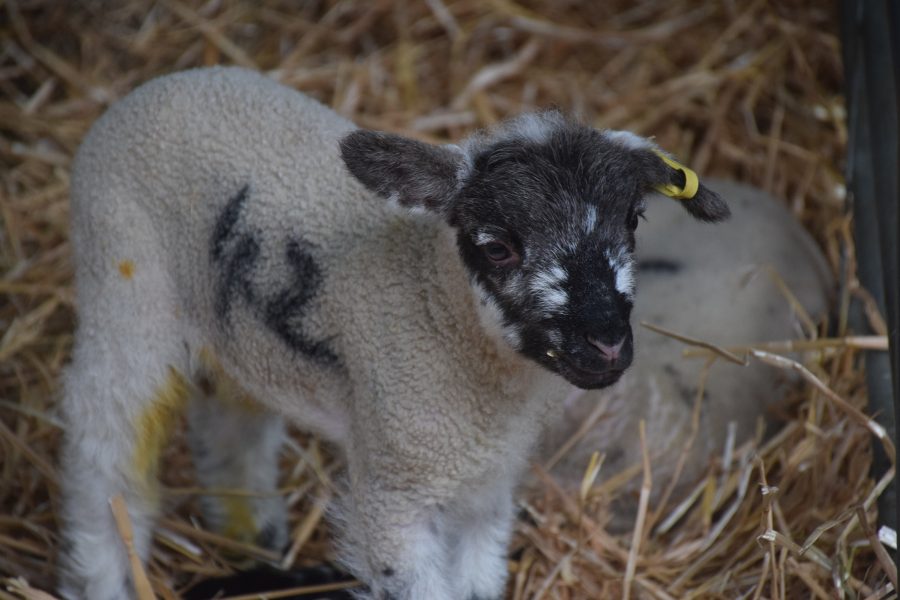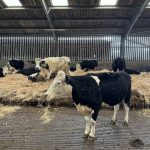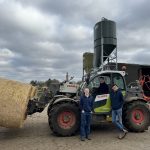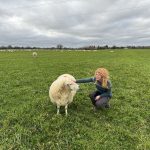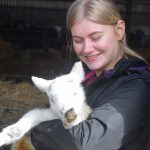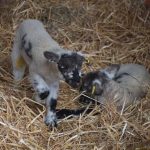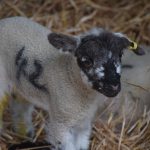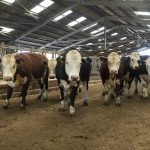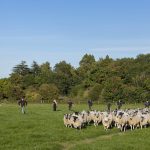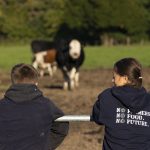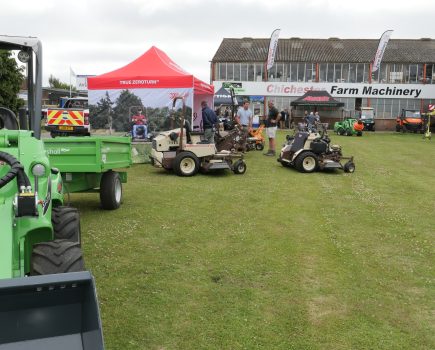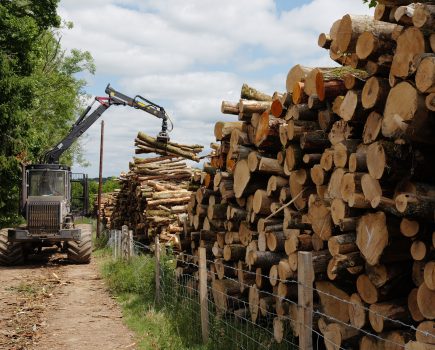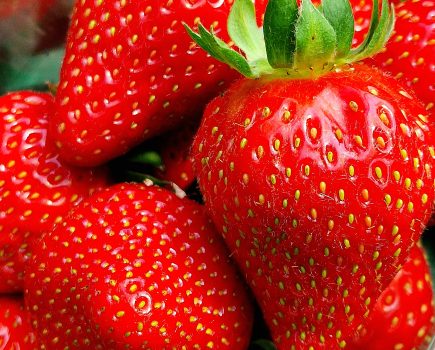This month Nigel Akehurst visits Hadlow College, part of North Kent College, to learn about Kent’s only rural and land-based college. He caught up with three students and farm manager Tania Bucknell to find out more.
Hadlow College has been based at its current site, just outside Tonbridge, for over 50 years and boasts a proud heritage within the land-based sector. Its history can be traced back over 100 years, with many former students having won major prizes in prestigious national events and playing a key part in the country’s rural economy.
Hadlow offers a wide range of courses for both school leavers and those looking to change career, including agriculture, horticulture, gardening, agricultural engineering, aquaculture and fisheries management, equine, animal management and floristry.
Meeting students
Visiting the college’s Blackman’s Farm site, home to its beef herd, I meet three students in Hadlow’s Rural Regeneration Centre to find out more about their experiences and plans.
I was interested to note that none of them came from a farming background. Level 3 agriculture student Clementine Young said she had grown up wanting to be a farmer and was enjoying the mix of practical training and theory the course provides. Currently in her first year, she had already studied soil science, machinery operations and animal husbandry. With a week’s work experience of milking cows under her belt, she has her sights firmly set on getting a job on a mixed farm with cattle and sheep.
Izaak Mann, a second-year student, said he hoped to work on an arable farm and maybe in agricultural contracting, so he could do a bit of silaging.
He highlighted one unit that covered sustainability issues, a topic he feels passionate about. He said we need to move forward and make farming better for the environment and improve the world in which we live.
Higher education student Finn Selby-Green, who is in the second year of a foundation degree, said he wanted to stay on at Hadlow to do a third year top up and get a BSc Honours. After that, he’d like to go travelling to New Zealand and Australia, where he hopes to do some sheep work before coming back to work in farm management or consultancy.
All three students were positive about the future of farming and felt mixed farming operations offered the best financial and environmental outcomes.
Finn also highlighted the ‘current issues facing the farming world’ unit they study, which looks at everything from COP 28 to the latest Sustainable Farming Incentive options and different forms of farm diversification.
After our chat we headed outside for a quick tour of the farmyard. The students showed me some of the different machinery in use on the farm, including a Claas telehandler. We also saw the suckler herd of Hereford cross cows in the large covered yards.
Meeting the farm manager
Next, I sat down with farm manager Tania Bucknell for a broader chat about the college farm, their flock of sheep and some of the challenges and opportunities facing agriculture.
Tania has worked at the college for 18 months, initially supporting the previous farm manager by running the college’s flock, supporting the lecturing staff with student practical sessions and assisting with the back-office processes. When he left to pursue another opportunity, Tania stepped up to run the farm.
She clearly loves her role and relishes the challenge of training up the next generation of farmers. Having previously worked in business herself, she is determined to run the farm as commercially as possible and give students a realistic experience of the farming industry.
Improving the flock
To try to make the sheep enterprise more efficient, Tania has started to make some flock improvements. The college had previously run a flock of mostly North Country and Suffolk mules. Tania quickly introduced pedigree Lleyns to the mix. “The Lleyns have got so much going for them. They are a high-performance ewe; they are milky, motherly and have good prolificacy”.
After her first year at the college, she dispersed the mules and replaced them with Romneys. “The Romney breed is part of Kent’s heritage and, as Kent’s only land-based college, it feels natural they should be part of our landscape. Being from the area they are also naturally adapted to some of the challenges we face with our grass platform.”
Last year Tania purchased two pedigree Romney tups from the Skinner family, which she put to their best Romney ewes, including a few pedigree tegs, with the aim of starting the college’s own pedigree flock.
The rest of the Romney flock was put to Chartex rams (Charollais x Beltex) in the hope that their continental conformation will produce a more commercial lamb. The Lleyn flock ran with pedigree rams. Tania said one of these was a shearling purchased from South East Farmer’s own Alan West who breeds a flock designed to be hard working. She feels confident his offspring will have the best chance of being well suited to the conditions on Hadlow College’s farm.
Lambing weekend
Lambing is carried out indoors and is due to start in April to coincide with one of the college’s biggest public events of the year. Lambing Weekend takes place this year from 20 to 21 April. Last year it was attended by nearly 10,000 visitors.
“It’s a big opportunity to showcase the college and the courses we offer,” said Tania. As well as showcasing lambing, the college has a large array of stalls and experts on hand to answer questions. To find out more or purchase tickets, visit the website (www.hadlow.ac.uk)
Herbal leys
Another area Tania has been keen to improve is the 97 hectares of grazing, a mix of permanent grass, improved grassland and herbal leys. Coming from a grassy farm in Wiltshire, she has been surprised by how dry it gets in the summer in Hadlow, with grass running tight early in the season. To help combat this, the college has established a number of herbal leys across the farm, allowing the enterprise to benefit from GS4 Countryside Stewardship funding.
When the permanent pasture bakes dry, the new herbal leys are holding up well, thanks to deeper rooting varieties such as chicory, she explained.
“Every challenge is an opportunity for learning,” added Tania, who works with around 50 different students across three different year groups.
Sheep outlets
Historically they’ve struggled to finish lambs off the grazing platform, with a small batch sold fat at Ashford and the rest sold as stores to preserve enough grass for tupping, said Tania. Going forward, with the new flock established, she plans to run a closed flock, performance recording to improve flock genetics.
The college plans to sell some of its own animals as pedigree breeding stock and, by being part of breed societies, open up that contact network to students, too.
Beef Cattle and Dairy Farm Partnership
The college now has a suckler herd of 24 Hereford crosses and a pedigree Hereford bull, which were all indoors at the time of visiting. The college also works closely with the local Pickering family. George Pickering manages the dairy enterprise at nearby Park Farm. Students go there to gain experience working on a commercial dairy, including morning milking duties.
It’s a partnership that works well, said Tania. “We need to understand what the farming community is looking for in their workforce to ensure our students are enterprise ready.”
Raising the profile of farming and encouraging more new entrants
Love him or hate him, Jeremy Clarkson has improved the profile of farming amongst the public, said Tania.
He has raised the profile of agriculture and farming to a wider audience, which in turn encourages more young people to consider a career in the industry, she added.
Challenges and tractor protests
Some of the key challenges facing agriculture include climate change, resistance to wormers and the economics of food production, said Tania. I ask what she makes of farmers demonstrating on the continent?
“It will be interesting to see what happens as a result of the protests. I think it is important for UK farmers to unite as one voice.”
On falling farm incomes, she commented that somehow the value lost needs to come back to the farmer, to protect the future of the industry. Having worked with supermarkets in a previous career, Tania warned that they are good at protecting their margin. She added that as big employers, they also hold huge sway with the government.
Finishing on a more positive note, she said more people were beginning to understand the importance of supporting local food systems and the impact food can have on health.
Other courses
Heading back to the car park, I pass some polytunnels and an impressive looking glasshouse, which I am told has three compartments; two have hydroponic production for tomatoes and one section is for propagation, student research and general crop production.
There is also a vertical farm with three layers for salad production and a three-hectare orchard and vineyard which produces grapes for wine, apples, cherries, plums and apricots. They benefit from all the latest technology, including drones and robotics.
Hadlow also offers state-of-the-art equine facilities, with just over 50 horses on site and a variety of resources including a mechanical horse, an equine treadmill and a racing simulator.
- Clementine, Finn and Izaak
- Tania, Farm Manager
- GS4 herbal ley
Farm facts
- 300 Breeding Ewes (50% Romney and 50% Lleyns) with a total of 400 head
- Lamb inside in April to coincide with lambing weekend
- 24 suckler cows (Hereford Crosses) plus 35 to finish/follow
- 97 hectares of grassland, including a mix of permanent grass, improved grass and herbal leys
- One twin-span polytunnel for seasonal plants linked to weather station
- Glasshouse with three compartments (two hydroponic production for tomatoes and one section for propagation)
- A vertical farm with three layers for salad production
- Four hectares of formal and woodland gardens
- Extensive equine facilities, with 50 horses kept on site.
- Resources include a mechanical horse, equine treadmill and a racing simulator.

